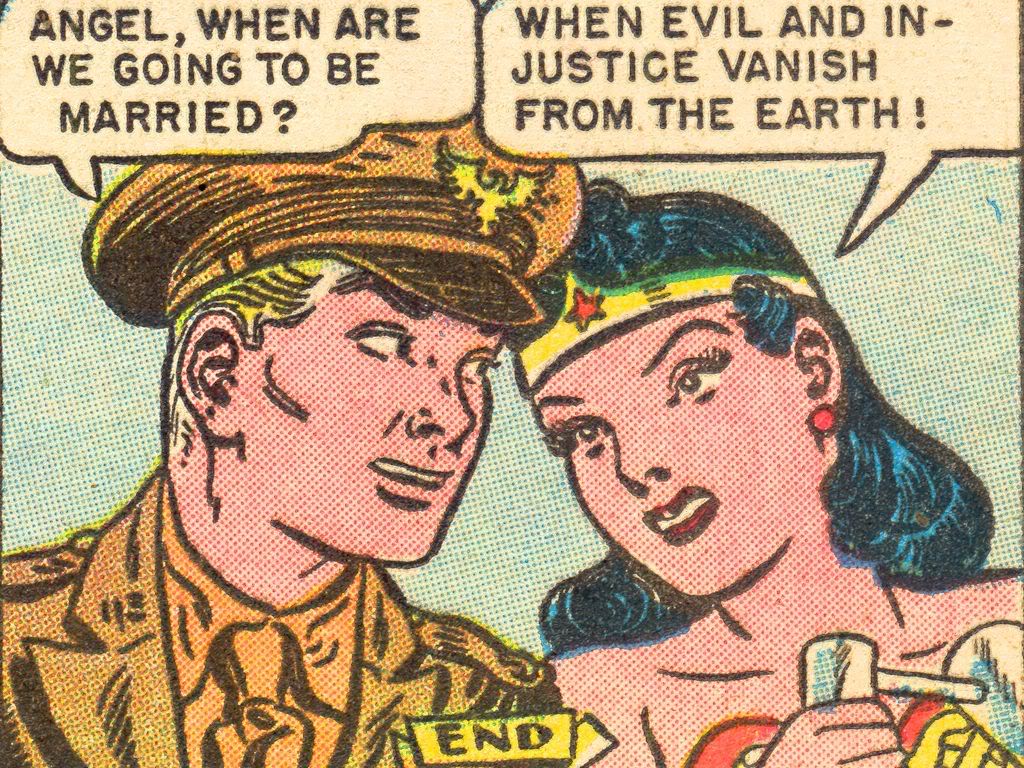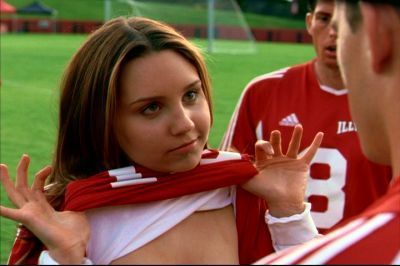This trend of trivializing women's lives isn't just in movies where all women talk about is finding a man, keeping a man, or stealing a man. It's everywhere - even in the case of Wonder Woman! Wonder Woman leaves her home of Paradise Island (where everyone is a strong woman) and comes to the man's world to deliver the wounded Captain Steve back to his home, and to fight for justice.
However, her story soon becomes about her marriage to Captain Steve for a while until (thankfully) the storyline was refocused.
Going back to She's the Man - I guess I shouldn't be too angered by the fact that most of the movie revolves around the Viola/Sebastian-Duke romance. That's pretty much how the story is in Twelfth Night, as well. The play is slightly problematized when Viola/Cesario realizes that Olivia is attracted to her, but everything only gets set into motion when Viola/Cesario decides that she wants Duke Orsino, too. The real issue isn't that Viola lost her twin in a shipwreck and doesn't really have a life plan other than pretend to be a male worker for Duke Orsino - it's that she has to find a way to solve the problematic lesbian attraction between her and Olivia, and shift Duke Orsino's affection from Olivia to herself.
Hmm...sounds familiar. Let's revisit the most popular things that women do in movies:
1. Find a man
Viola/Cesario already solved this problem (she found Duke Orsino).
2. Steal a man
Viola/Cesario pretty much does this since she ends up with Duke Orsino instead of Olivia. I'd argue that even before her revelation as being a woman, she had the Duke's affections, or at least sparked an attraction between them.
I know they're scared of the tarantula, but they're pretty close...
3. Keep a man
Faced with the threat of being cut off from Duke Orsino when he is furious that Olivia welcomes Cesario as her husband, Viola/Cesario immediately reveals herself to be a woman to "keep her man."
Viola reveal scene from She's the Man
Shakespeare's Viola/Cesario is no different from many of the female characters in our media today. Even in movies and shows with somewhat "progressive" storylines for women - like Gone Girl and Revenge - it all comes down to being about man. It may not always be a heteronormative love interest (such as in Revenge where the plot revolves around Amanda Clarke's father being falsely imprisoned), but it's a man nonetheless.





I agree with a large amount of your analysis in this post. The rules women are bound to in cinema differs greatly than those set by men. However, I would extend your argument to not being limited to simple objectification: such as scantily clad “high school women” fighting over boys, but in their idealization as a fantasy as well. In many of these high school films where there is a male protagonist, women are consistently put on pedestals. It is not enough for a woman to simply be attractive. They must be incredibly intelligent, awe inspiringly humble, AND somehow be attracted to the geek who has zero social skills. These films somehow blame the geek’s lack of romantic success on the women not liking them, not their own substandard ways of living (they often simply pine after the popular girl, while doing little to better their own lives). The “nice guy” trope is just as harmful as the “seeking the man” trope in films such as She’s the Man.
ReplyDelete